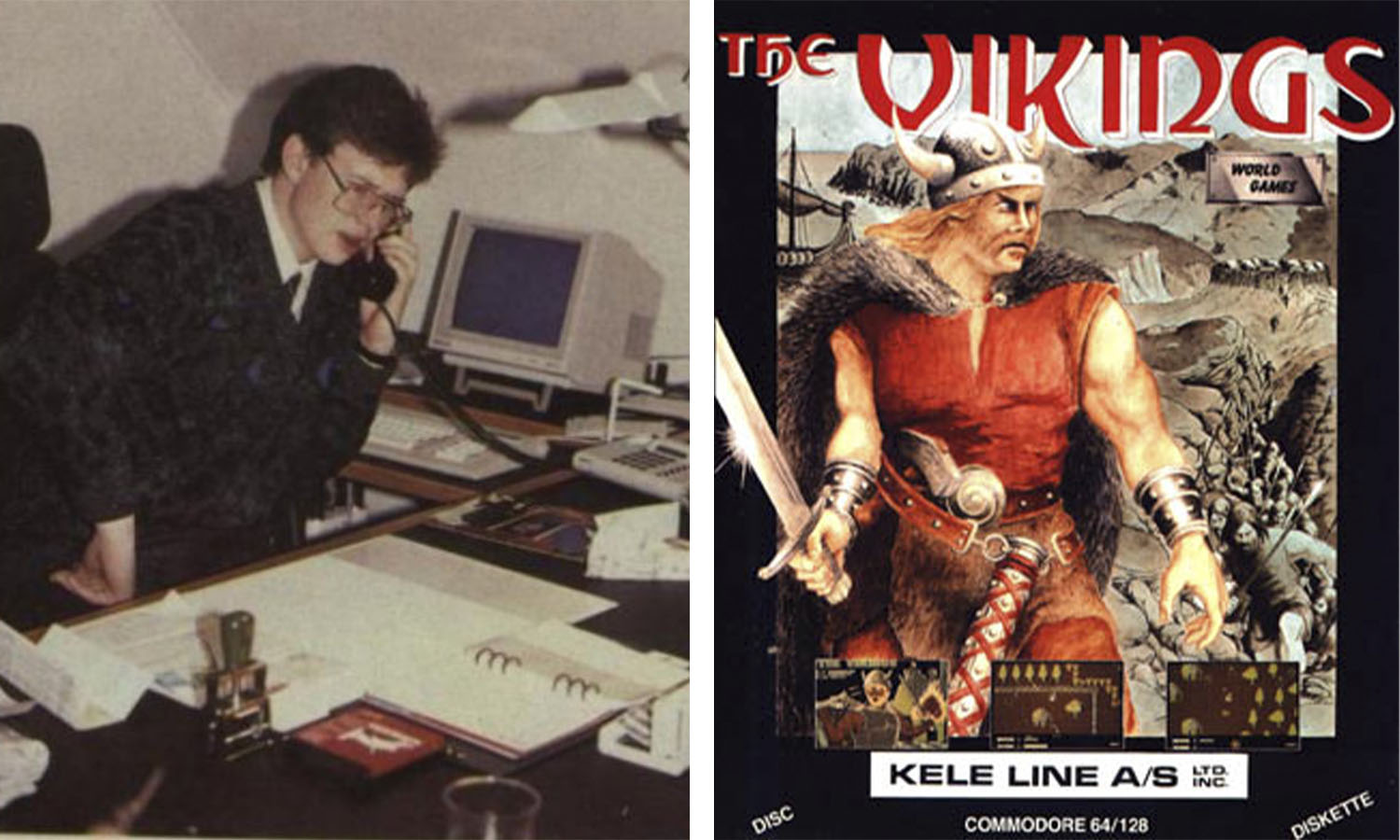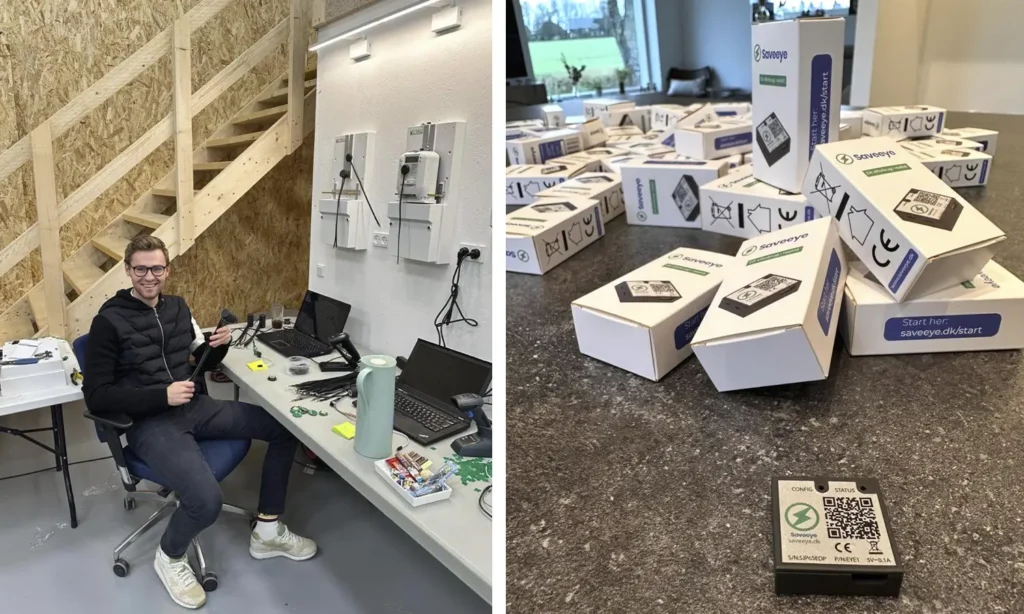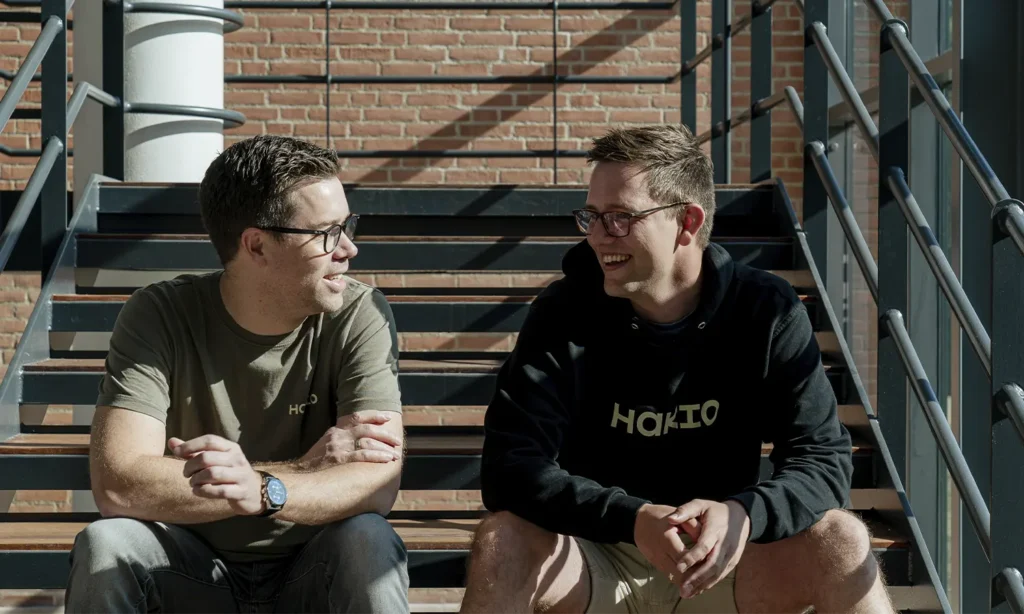As a mere 16-year-old, Keld Jensen ventured into the infant IT industry for the first time in the mid-80s. Together with an older companion, he began parallel importing home computers from the UK through the company Kele Line. However, the company wouldn’t gain national recognition until a few years later, when his business partner Leo had stepped down, and Keld changed direction to focus on developing the first commercial game studio in Denmark.
“We were one of the first – if not the first – to seriously try to make computer games in Denmark. I had looked a lot at the UK, which was far ahead of us, and thought that we can damn well do that in Denmark as well. When you are 19 years old, common sense is not so common, so we started doing it without knowing anything about the industry,” says Keld Jensen today with a laugh.
The start-up capital came from his mother, who guaranteed a loan of 300,000 kroner. Next came a large office, which was rented in Slangerup, to the north of Copenhagen, where Keld hails from, and young programmers and designers were hired to start developing the games.
“It was actually started on a young boy’s dream of making computer games. Looking back, it was incredibly naive, but also a bit amazing. And we actually did really well. Until we closed,” Keld Jensen says.
The first gaming rockstars
With the location in place, the young team threw itself at their great ambition: to develop games in Denmark on a commercial scale. Even though it was still in the early days of computers in mid-1986, it was already a challenge to develop games for several platforms. Back then, they were just called Amiga, Amstrad and Commodore instead of Xbox, Playstation and PC.
“We were teams of 2-3 men – or boys really – who spent 4-6 months developing each game. We were between 16-19-years-old, all about the same age as me, and we just had fun doing it. No one had a formal education and many still went to school at the same time. But the programmers were brilliant, in fact, I would say that they were of international quality,” Keld Jensen says.
During 1986 and 1987, the team succeeded in publishing four games from Denmark’s first commercial game studio – one of which had music produced by the world-renowned electronic artist Jean-Michel Jarre. Although this didn’t make the studio an overnight global success, it did garner significant interest from the public, and game development became a national affair, which found its way to the front pages of the major morning newspapers.
“I actually think the product we delivered was okay. It was far from the best, but also far from the worst. It was certainly good enough to sell. And we actually became big names in Denmark and the UK, and I think they the Danish had a national feeling about our success because we wanted to compete with the British,” Keld Jensen remembers.
You can’t export software!?
The UK were first-movers when it came to computer games, and when the newly-founded Kele Line didn’t have the strength to distribute its games, they found a publisher there. In these pre-internet days, this partner had physical copies of the games sent out on floppy disks to gamers all over Europe. And for Kele Line, it was a great model, right up until the distributor went bankrupt.
“They owed us a fortune when they went bankrupt. So we had to close, as a result of that. I really think we were on our way to becoming something big if we had not fallen over the doorstep,” Keld Jensen says.
Shortly before the bankruptcy, the young entrepreneur had been foresighted enough to visit the Export Credit Council to secure his exports. But they were not ready for software at the time.
“They said; you can’t export software – it has to be machines or something physical,” Keld Jensen remembers, laughing, before he continues:
“I still find it funny today, that at the time people did not think that software was something that could be exported. But if they had said yes to it, it could have meant that we had one of the world’s largest software houses in Denmark today.”
The bankrupt beacon
Today, Keld Jensen laughs at the experiences he had 35 years ago. But at the time, there was not much fun to be had in the aftermath of the bankruptcy. Keld Jensen was declared the villain by the media. And while it was true that several of the employees did not get their pay, the story that he himself had run off with the money was not true. Instead of ending up with his pockets full, he was forced to move back into the childhood home and began repaying a large debt.
Although the gaming adventure came with a big bill, and Keld Jensen has never since touched computer games professionally, he does not regret the journey.
“Had the agreement with the distributor worked, I think it could have become a big deal. Was it hard? Yes! Was it hard afterwards? Yes! But it was super cool to be part of. And I think, we became a platform for others to believe that games could actually be done well in Denmark. We were probably the lighthouse that helped to create a lot of attention around computer games,” Keld Jensen says.
About: Keld Jensen
- As the founder of Kele Line, Keld Jensen helped make the first large, commercial venture into computer games a reality in Denmark.
- The studio managed to release four games before closing with a bang after just one and a half years.
- Since 1988, Keld Jensen has not been involved in computer games. However, he remained in the IT industry for a number of years – including at IBM and Toshiba – before going all-in on a career as a Negotiation Consultant.
- Today, his business helps both organizations and governments with negotiation. He is also a lecturer on the subject, a professor at universities in Denmark, the USA, Belgium and the Baltics and the author of 24 books on negotiation. Most recently, Keld has been included in the prestigious Global Gurus Top 30 and has received recognition of his work with a number of awards in Denmark and internationally.
















 Kære læser, du er meget velkommen til at dele vores artikler på sociale medier, linke eller referere til artikler eller content på TechSavvy.media. Men ønsker du helt eller delvist at kopiere indhold fra sitet må det kun ske efter aftale med vores redaktion på editorial@techsavvy.media.
Kære læser, du er meget velkommen til at dele vores artikler på sociale medier, linke eller referere til artikler eller content på TechSavvy.media. Men ønsker du helt eller delvist at kopiere indhold fra sitet må det kun ske efter aftale med vores redaktion på editorial@techsavvy.media.
 Kære læser, du er meget velkommen til at dele vores artikler på sociale medier, linke eller referere til artikler eller content på TechSavvy.media. Men ønsker du helt eller delvist at kopiere indhold fra sitet må det kun ske efter aftale med vores redaktion på editorial@techsavvy.media.
Kære læser, du er meget velkommen til at dele vores artikler på sociale medier, linke eller referere til artikler eller content på TechSavvy.media. Men ønsker du helt eller delvist at kopiere indhold fra sitet må det kun ske efter aftale med vores redaktion på editorial@techsavvy.media.